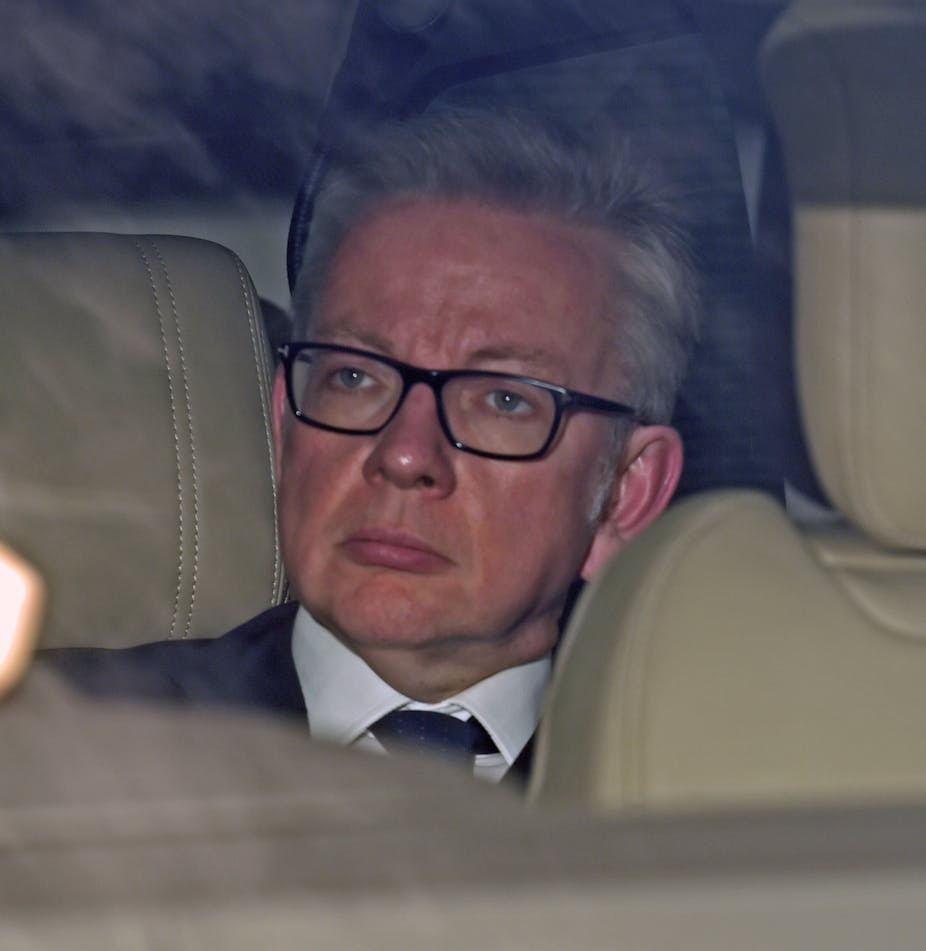Those eligible to vote in the Conservative leadership contest consist of Conservative MPs and party members. They represent a tiny percentage of the British electorate. This fact has attracted criticism of the present contest given that it involves choosing a new prime minister. But how would the rest of the country vote if the electorate had a say in this contest?
We can answer this question by looking at our survey of voters in Britain commissioned from Deltapoll which was carried out just before and after the European elections. This panel survey, which involves interviewing the same people twice, is part of a project to study the Brexit process. The sample is just over 2,500 people, which is more than twice as many as a standard opinion poll.
We found that, while Conservative MPs chose Boris Johnson and Jeremy Hunt as their two finalists, the wider public might have preferred Michael Gove to take Hunt’s place. This will do little to help heal the wounds of Gove supporters, who have accused MPs backing Johnson of skulduggery. They believe some “lent” Hunt their votes to prevent Gove from making it through to the next round.
Last-minute adjustment
Just as our survey was going into the field, Theresa May announced that she was stepping down as party leader and prime minister. So, at the last minute, we included the following question in the survey: If Theresa May is no longer leader, which of the following people do you think would make the best leader of the Conservative Party?
Support for Conservative leadership candidates in the British electorate

We had to guess the names of the contenders at the time and, fortunately, got it right with the exception of Rory Stewart. He appears in the “someone else” category in the figure.
We have already seen that in the various rounds of voting by Conservative MPs Johnson is the clear favourite to win – and this turns out to be true among the voters as well. But, for second place, they marginally preferred Gove. He was just ahead of Hunt in popularity, and so setting aside the “someone else” category, voters in general would like to have seen these two in the final contest.
Breaking it down by party
It is interesting to see how different party supporters would vote if they had been able to participate in the contest.
Support for Conservative leadership candidates by partisanship

There are some interesting findings about how partisanship relates to candidate preference. For example, voters who identify with the Brexit party prefer Johnson even more than the Conservative identifiers. They also opt for hardline Brexiteer Dominic Raab in second place.
Conservative identifiers, on the other hand, put Gove in second place instead of Raab – and significantly ahead of Hunt.
Labour and Liberal Democrat identifiers, and those who don’t identify with a party all prefer a generic “someone else” candidate – which reflects the fact that most of them do not like any Tory politicians.

The crucial group for the new Conservative leader to win over is voters who have no party identification at all. This is because they are more likely to switch their vote in an election given that partisanship acts as a barrier to voters changing their minds. If the new leader is to rebuild Conservative support then he needs to appeal to this group. It appears that they prefer Johnson by a margin of more than two to one over their second preference, which is Sajid Javid. But they like Hunt more than Gove. The final outcome in the two horse race is likely to be more acceptable to them than to Conservative identifiers who like Gove more than Hunt.
That said, it is important to note that the “No Party” identifiers are the group most likely to want a generic “someone else” candidate, suggesting that they may not be that impressed by the current line-up of leadership hopefuls. While Johnson may be the most likely to win them over, he will nonetheless have a hard task doing so, since they really appear to want an alternative – even if it is not clear who that would be.

